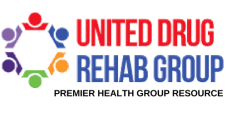How To Avoid Children Being Addicted To Drugs and Alcohol
Drug addiction is a serious problem in our country and throughout the world. However, most people don’t realize that even preschoolers can have serious issues with substances. Shocking statistics have been released from a study conducted in the United Kingdom. Children, some as young as four years of age, are being admitted for treatment in drug abuse treatment facilities. There are hundreds of youngsters being referred each year for addiction issues. An equally shocking statistic is that 50 percent of those under 13 years of age being treated for drug and alcohol also received treatment for a marijuana addiction.
Consistency Is The Key
The study was conducted by Andrew Brown, the director of programs at Charity Mentor in the UK. Brown was shocked by the findings and stated that the emphasis on drug and alcohol treatment must improve. Talking with other counselors, they found that those who are admitted to drug rehab clinics get inconsistent help. Most addicts only take part in one or two sessions per year. In order to have a successful substance abuse treatment program, there must be consistency and longer teaching times.
Based on the evidence collected, if the patients had more comprehensive addiction recovery programs to help them build better coping skills, they would be less likely to relapse. Since these problems often exist for many years, sometimes even for decades, a limited number of sessions are unlikely to resolve the underlying issue. What is required is constant, ongoing support.
Parents are The Biggest Suppliers to Children
Children that have an addiction are most likely getting addicted from their mother using drugs during pregnancy, being sick and taking liberally prescribed medications, or taking pills and other drugs from their parents. Children mimic the parent’s behavior, which can be especially problematic when drugs and alcohol are involved. A parent who has an addiction problem can not only pass a genetic predisposition for addiction on to their children, but may also keep the addictive items in an easily accessible location. Parents must learn the harmful nature of their actions, and they must consider the consequences of those actions for their children.
Drug Education Must Begin Sooner Than Sixth Grade
Many referrals come into substance abuse treatment centers. These referrals arrive when a child is already abusing substances, or there is a high probability that the child will use based on their parent or other relative in the home. There must be an comprehensive shake-up within the drug education system, and must extend to primary and secondary schools. While drug education typically starts around sixth grade, there has been a movement to begin the educational lessons sooner. During the 2012-2013 school year, more than 366 children over the age of 12 were referred for drug or alcohol treatment. The youngest treated child was just four years old.
Fear Won’t Cause Change – Love Will
The current strategy is not working, and there is a lack of specialized treatments. The current treatments are based on the dangers of drugs rather than the health concerns of the public. It is not possible to scare someone in order to stop them from using. Frightened by the attempt to scare them into sobriety, they will simply find new and more creative ways to get their fix. Instead, they must learn the ramifications to a person’s health who they use these substances. Parents must also take responsibility, and ensure their children are not being exposed to these harmful things in the first place.
Parents must learn the consequences to both their children’s bodies as well their own as a result of abusing substances. Even if children born to alcoholics don’t suffer complications from birth, when they grow up in a home where drinking alcohol is considered the normal flow, they may not understand how harmful it really can be. The parents and the school must take responsibility to educate children and teach them the ramifications of using these substances. It’s time for a big change in the education process of drugs and alcohol for both children and parents.
If you know a child who needs treatment at a substance abuse treatment facility, or if you need to overcome your addiction issues in order to provide a better life for your child, contact United in order to receive the treatment you need.



